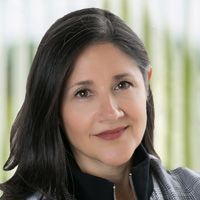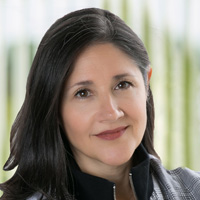5 Tips to Make Your Year-End Giving Go Further
Here are a few ideas on how to help maximize the feel-good effects that your charitable contributions can deliver this year.


Profit and prosper with the best of Kiplinger's advice on investing, taxes, retirement, personal finance and much more. Delivered daily. Enter your email in the box and click Sign Me Up.
You are now subscribed
Your newsletter sign-up was successful
Want to add more newsletters?

Delivered daily
Kiplinger Today
Profit and prosper with the best of Kiplinger's advice on investing, taxes, retirement, personal finance and much more delivered daily. Smart money moves start here.

Sent five days a week
Kiplinger A Step Ahead
Get practical help to make better financial decisions in your everyday life, from spending to savings on top deals.

Delivered daily
Kiplinger Closing Bell
Get today's biggest financial and investing headlines delivered to your inbox every day the U.S. stock market is open.

Sent twice a week
Kiplinger Adviser Intel
Financial pros across the country share best practices and fresh tactics to preserve and grow your wealth.

Delivered weekly
Kiplinger Tax Tips
Trim your federal and state tax bills with practical tax-planning and tax-cutting strategies.

Sent twice a week
Kiplinger Retirement Tips
Your twice-a-week guide to planning and enjoying a financially secure and richly rewarding retirement

Sent bimonthly.
Kiplinger Adviser Angle
Insights for advisers, wealth managers and other financial professionals.

Sent twice a week
Kiplinger Investing Weekly
Your twice-a-week roundup of promising stocks, funds, companies and industries you should consider, ones you should avoid, and why.

Sent weekly for six weeks
Kiplinger Invest for Retirement
Your step-by-step six-part series on how to invest for retirement, from devising a successful strategy to exactly which investments to choose.
Giving to charity is now easier than ever – especially during the holidays. Whether writing a check, opting to “round up” at the register, or simply clicking a “donate” button, you can quickly make a donation and be on your way. But after a few minutes, that good-deed feeling fades, and you may be left wondering if your contribution made a significant impact. What if you could make your giving reach more people this year?
Here are five tips to maximize your giving, just in time for the holidays.
1. Find matching opportunities.
Many charities have annual fundraising campaigns with mega donors who match contributions — sometimes as much as 3:1 — received during specified timeframes. Check to see if your favorite causes have similar opportunities that could double or even triple your impact, and help the organizations reach their goals.
From just $107.88 $24.99 for Kiplinger Personal Finance
Become a smarter, better informed investor. Subscribe from just $107.88 $24.99, plus get up to 4 Special Issues

Sign up for Kiplinger’s Free Newsletters
Profit and prosper with the best of expert advice on investing, taxes, retirement, personal finance and more - straight to your e-mail.
Profit and prosper with the best of expert advice - straight to your e-mail.
Employers often offer matching programs, too, which can make a big difference to nonprofits. You can even start a program in which you supply the funds for a future matching challenge.
2. Make it a family affair.
The holidays offer a rare opportunity to get the whole family together, and it’s the perfect time to get your kids and grandkids involved in giving. One idea is to create a “giving budget” to donate to charity. Each child then suggests a cause to help everyone decide where and how to distribute the “budget.” Actual dollars can then be given for the holidays — and even matched by grown-ups. The possibilities are limitless.
Looking for more family-friendly giving ideas? Foundation Source’s The Secret to Joyful Giving guide can help.
3. Formalize your giving.
If you don’t have a charitable vehicle but have been giving consistently and expect to give more in the future, several options are available to ensure your gifts are more organized, strategic and tax efficient. You can diversify and expand your giving with vehicles like a private foundation or a donor-advised fund that will earmark assets for charitable purposes and potentially provide meaningful tax benefits.
Private foundations offer flexibility, control and other unique advantages that support creative and entrepreneurial philanthropy. Donor-advised funds provide advantages like anonymity and higher tax deductions. You can also incorporate your philanthropic objectives into your will or estate plan and explore planned giving and trusts.
4. Don’t forget Uncle Sam.
Coordinating your charitable contributions with your tax strategy, estate planning and investment management could result in better outcomes — across all disciplines — and ensure that you get beneficial tax deductions, which in turn allows you to give more. With charitable vehicles like private foundations and donor-advised funds, you can maximize your tax savings and may be able to claim a same-year tax deduction.
5. Know your minimums.
If you have a charitable vehicle with a minimum distribution requirement, make sure you know what it is and how much you have left to disburse so your assets are used for charitable purposes and not penalties. For example, private foundations are required to annually distribute at least 5% of the previous year’s average net assets.
Qualifying distributions from the foundation include grants to public charities, administrative expenses and certain costs related to carrying out the foundation’s charitable purpose, such as a building, computers and office furniture.
©2021 Foundation Source Philanthropic Services, Inc. All rights reserved.
Profit and prosper with the best of Kiplinger's advice on investing, taxes, retirement, personal finance and much more. Delivered daily. Enter your email in the box and click Sign Me Up.

Hannah Shaw Grove is the chief marketing officer of Foundation Source, founder of "Private Wealth" magazine and author of 11 data-based books and hundreds of reports and articles on topics relating to the creation, management, disposition and transfer of wealth. Hannah has previously been the chief marketing officer at Apex Clearing, iCapital Network and Merrill Lynch Investment Managers and is a cum laude graduate of Harvard University. She holds the FINRA Series 6, 7, 24, 26 and 63 licenses.
-
 5 Investing Rules You Can Steal From Millennials
5 Investing Rules You Can Steal From MillennialsMillennials are reshaping the investing landscape. See how the tech-savvy generation is approaching capital markets – and the strategies you can take from them.
-
 The Tool You Need to Avoid a Post-Divorce Administrative Nightmare
The Tool You Need to Avoid a Post-Divorce Administrative NightmareLearn why a divorce decree isn’t enough to protect your retirement assets. You need a QDRO to divide the accounts to avoid paying penalties or income tax.
-
 When Estate Plans Don't Include Tax Plans, All Bets Are Off
When Estate Plans Don't Include Tax Plans, All Bets Are OffEstate plans aren't as effective as they can be if tax plans are considered separately. Here's what you stand to gain when the two strategies are aligned.
-
 When Estate Plans Don't Include Tax Plans, All Bets Are Off: 2 Financial Advisers Explain Why
When Estate Plans Don't Include Tax Plans, All Bets Are Off: 2 Financial Advisers Explain WhyEstate plans aren't as effective as they can be if tax plans are considered separately. Here's what you stand to gain when the two strategies are aligned.
-
 Counting on Real Estate to Fund Your Retirement? Avoid These 3 Costly Mistakes
Counting on Real Estate to Fund Your Retirement? Avoid These 3 Costly MistakesThe keys to successful real estate planning for retirees: Stop thinking of property income as a reliable paycheck, start planning for tax consequences and structure your assets early to maintain flexibility.
-
 I'm a Financial Planner: These Small Money Habits Stick (and Now Is the Perfect Time to Adopt Them)
I'm a Financial Planner: These Small Money Habits Stick (and Now Is the Perfect Time to Adopt Them)February gets a bad rap for being the month when resolutions fade — in fact, it's the perfect time to reset and focus on small changes that actually pay off.
-
 Social Security Break-Even Math Is Helpful, But Don't Let It Dictate When You'll File
Social Security Break-Even Math Is Helpful, But Don't Let It Dictate When You'll FileYour Social Security break-even age tells you how long you'd need to live for delaying to pay off, but shouldn't be the sole basis for deciding when to claim.
-
 I'm an Opportunity Zone Pro: This Is How to Deliver Roth-Like Tax-Free Growth (Without Contribution Limits)
I'm an Opportunity Zone Pro: This Is How to Deliver Roth-Like Tax-Free Growth (Without Contribution Limits)Investors who combine Roth IRAs, the gold standard of tax-free savings, with qualified opportunity funds could enjoy decades of tax-free growth.
-
 One of the Most Powerful Wealth-Building Moves a Woman Can Make: A Midcareer Pivot
One of the Most Powerful Wealth-Building Moves a Woman Can Make: A Midcareer PivotIf it feels like you can't sustain what you're doing for the next 20 years, it's time for an honest look at what's draining you and what energizes you.
-
 I'm a Wealth Adviser Obsessed With Mahjong: Here Are 8 Ways It Can Teach Us How to Manage Our Money
I'm a Wealth Adviser Obsessed With Mahjong: Here Are 8 Ways It Can Teach Us How to Manage Our MoneyThis increasingly popular Chinese game can teach us not only how to help manage our money but also how important it is to connect with other people.
-
 Looking for a Financial Book That Won't Put Your Young Adult to Sleep? This One Makes 'Cents'
Looking for a Financial Book That Won't Put Your Young Adult to Sleep? This One Makes 'Cents'"Wealth Your Way" by Cosmo DeStefano offers a highly accessible guide for young adults and their parents on building wealth through simple, consistent habits.